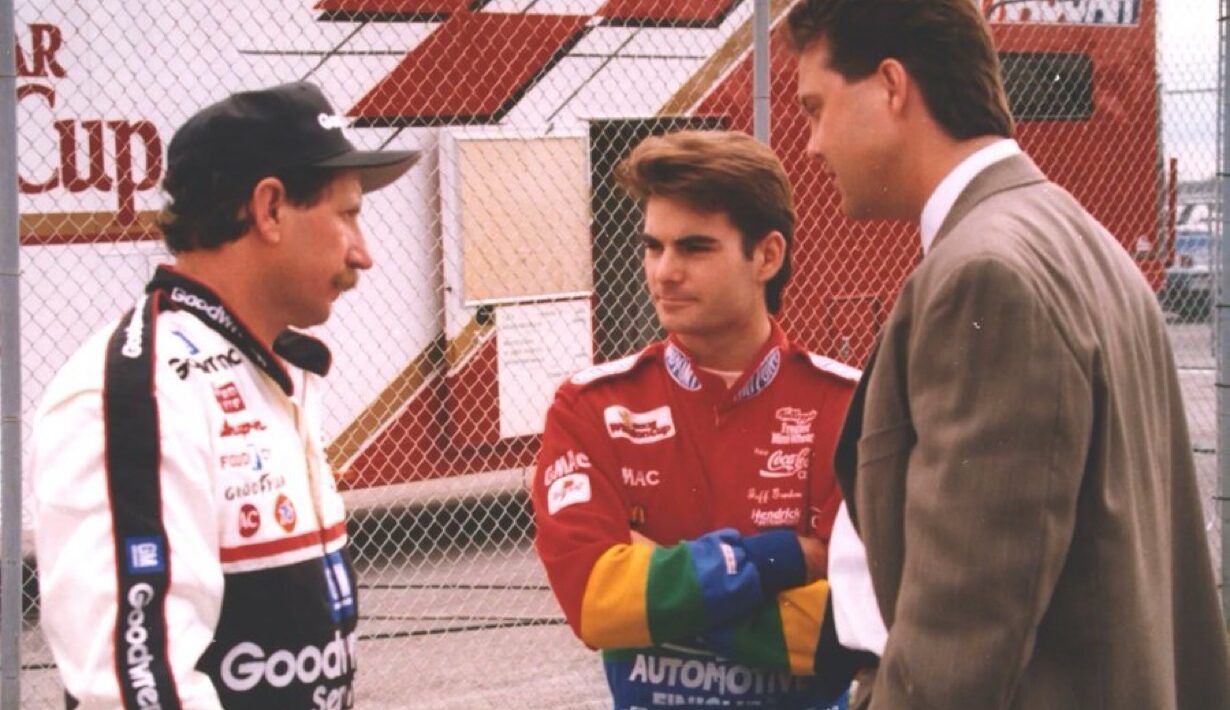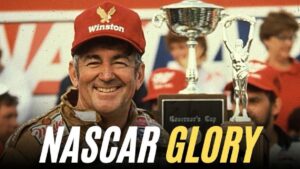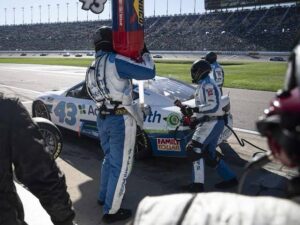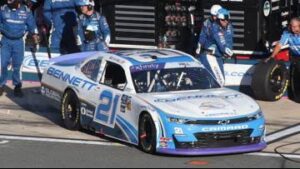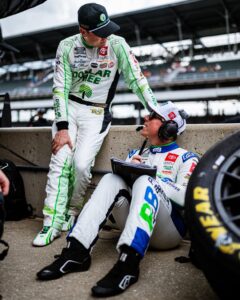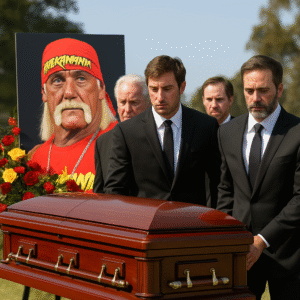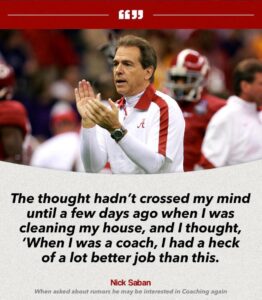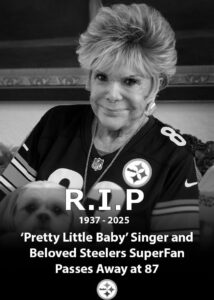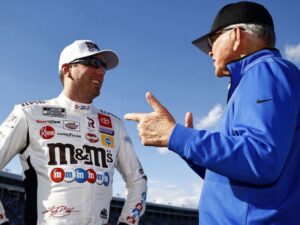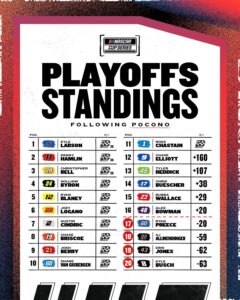A nostalgic photo from 1995 captures a candid moment between NASCAR legends Jeff Gordon and Dale Earnhardt, alongside a young Brian France. At the time, Gordon was ascending to superstardom, Earnhardt was solidifying his legacy as the “Intimidator,” and France, then in his early career, was quietly observing the sport that would one day fall under his leadership.
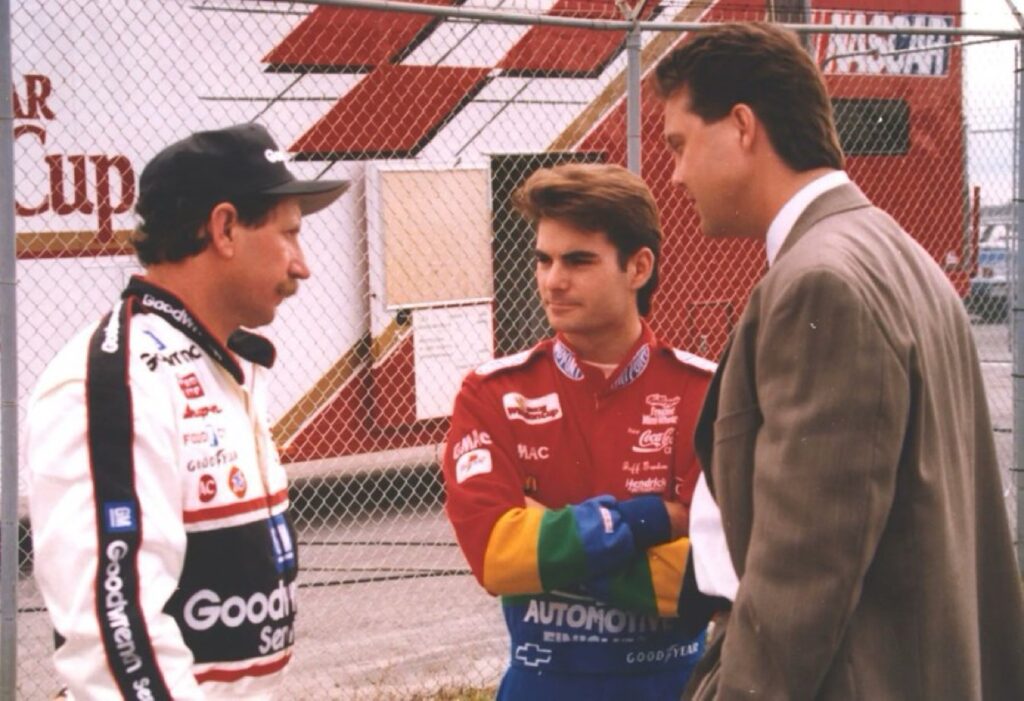
This image symbolizes an era of NASCAR on the brink of transformation, with its future shaped significantly by France’s eventual tenure as NASCAR’s CEO and chairman.
Brian France’s Rise to Leadership
Although France was a background figure in 1995, his name was already prominent in the sport, as a member of NASCAR’s founding family. The grandson of NASCAR founder Bill France Sr. and son of longtime chairman Bill France Jr., Brian was gradually taking on a larger role in the sport’s business operations.
In 2003, France succeeded his father as NASCAR’s CEO and chairman. His appointment marked a shift in leadership style, with France focused on modernizing the sport, appealing to younger audiences, and expanding its national and international footprint.
The Defining Legacy: The NASCAR Playoffs
France’s most significant and controversial contribution came in 2004, with the introduction of the 10-race playoff system, initially called the “Chase for the Cup.” This move fundamentally altered how NASCAR’s Cup Series champion was determined, replacing the season-long points format with an elimination-style structure.
The system was designed to increase late-season drama and emulate the excitement of playoffs in other major sports. Over the years, the format has evolved—most notably in 2014 with the current knockout-style, winner-take-all Championship 4 finale—but its essence remains rooted in France’s vision.
While some fans lamented the loss of the traditional points championship, others embraced the playoff system’s unpredictability and drama, particularly in the final races of the season. Regardless of opinion, the NASCAR playoffs remain a cornerstone of France’s legacy.
Earnhardt, Gordon, and the Sport’s Boom in the ‘90s
In the mid-1990s, NASCAR was experiencing unprecedented growth. Stars like Earnhardt and Gordon were central to the sport’s popularity, with Earnhardt representing the blue-collar, traditional fanbase, and Gordon attracting new, younger fans.
By 1995, Earnhardt had already captured seven championships, while Gordon was in the midst of his breakout season, winning his first NASCAR Cup Series title that year. The juxtaposition of their styles—Earnhardt’s rough-and-tumble aggression versus Gordon’s polished precision—helped define an era.
Brian France’s Impact on NASCAR’s Future
France’s tenure as CEO and chairman, which ended in 2018, was marked by bold changes aimed at keeping NASCAR relevant in an evolving sports landscape. Beyond the playoff system, France spearheaded initiatives like the “Car of Tomorrow,” safety improvements, and digital media advancements.
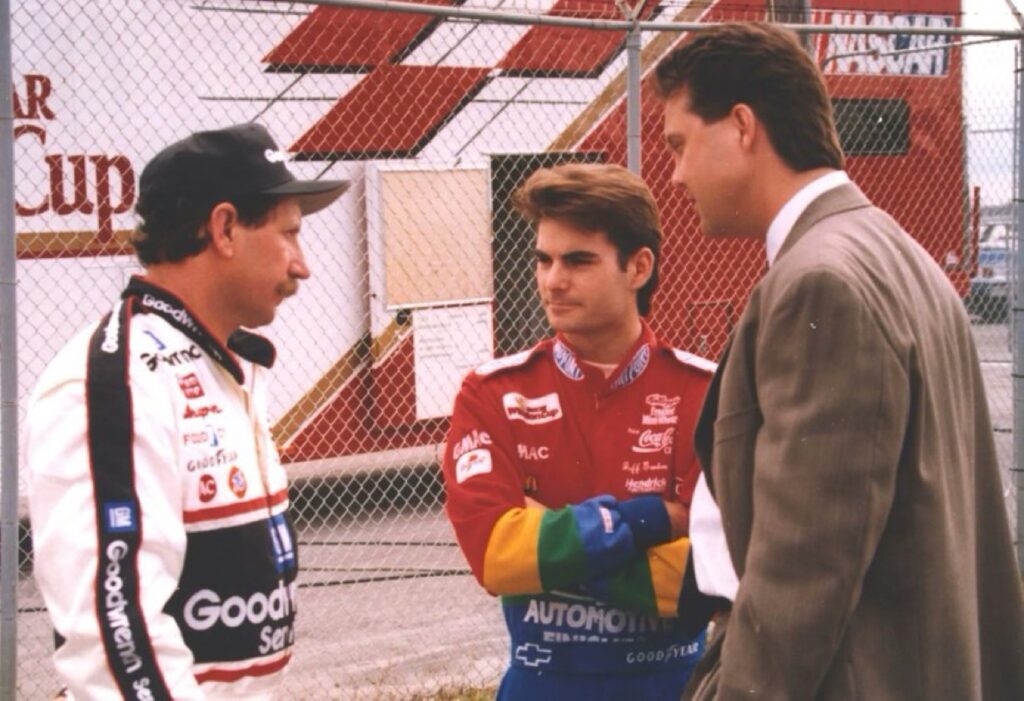
However, his time at the helm was not without controversy. Critics argued that some of his changes alienated the sport’s traditional fanbase, and his leadership style was occasionally polarizing. Nevertheless, France’s influence on NASCAR’s modern era is undeniable.
A Moment That Symbolized Change
The 1995 photo of Gordon, Earnhardt, and Brian France serves as a poignant reminder of NASCAR’s interconnected past, present, and future. Earnhardt represented the sport’s rugged roots, Gordon its meteoric rise, and France the impending transformation that would shape the next two decades.
As fans reflect on this image, it underscores NASCAR’s ability to evolve while
